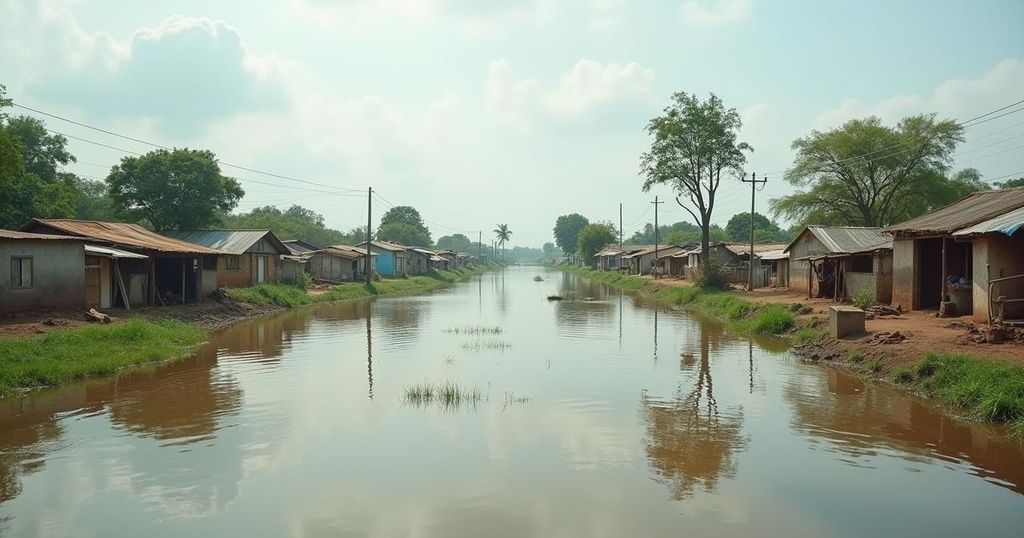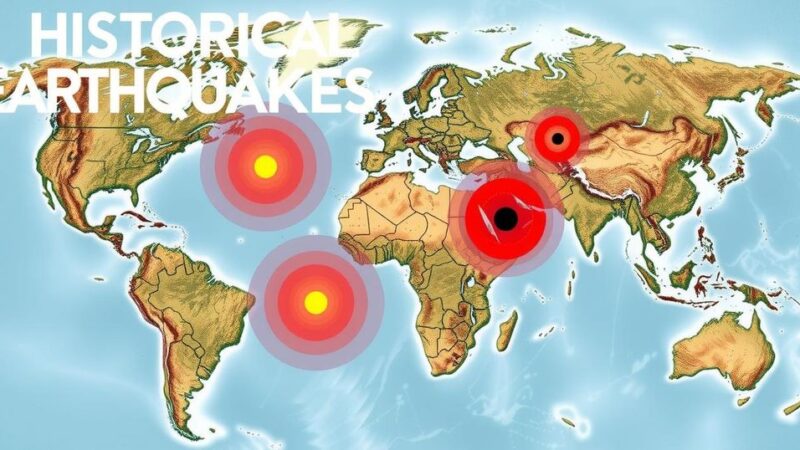Recent floods in South Sudan have affected 893,000 people, leading to the displacement of over 241,000 individuals. The floods, worsened by climate change, have rendered critical supply routes unusable. The humanitarian crisis, compounded by economic challenges and conflict, poses severe risks for millions in the upcoming year. Internally, political delays are causing frustration among residents and international partners.
The humanitarian situation in South Sudan has deteriorated significantly due to severe flooding, with the United Nations Office for the Coordination of Humanitarian Affairs (OCHA) reporting that approximately 893,000 individuals have been impacted. The floods have resulted in the displacement of over 241,000 people seeking refuge on higher ground across 16 counties and the Abyei Administrative Area, a contested region between South Sudan and Sudan. The floods have made 15 major supply routes unusable, hampering relief efforts in the country, which is already grappling with the effects of climate change. OCHA highlights that Unity and Warrap states are particularly hard-hit, accounting for more than 40 percent of those affected. Additionally, the World Bank has noted that the flooding exacerbates a critical humanitarian crisis that includes severe food insecurity, economic challenges, and ongoing conflicts. With the ongoing turmoil in neighboring Sudan forcing nearly 800,000 refugees into South Sudan, the situation is expected to worsen, as an estimated nine million people may face critical needs in 2024. Moreover, the political landscape remains unstable, with prolongation of a transitional government period originally established under a peace agreement, further fueling frustration among the populace and international observers.
South Sudan, the world’s youngest nation, gained independence from Sudan in 2011 but has since been beset by chronic instability and humanitarian disasters, including droughts and floods. The current flooding crisis comes on the heels of existing severe food insecurity and economic decline. Furthermore, the conflict in Sudan has contributed to an influx of refugees—many of whom are returnees—compounding the humanitarian challenges faced by South Sudan. The international community and UN observers have expressed their concern regarding the political stagnation in South Sudan, particularly amidst ongoing delays in fulfilling the terms of the 2018 peace agreement.
In summary, the flooding in South Sudan represents a significant humanitarian disaster, affecting nearly 900,000 individuals and displacing over 240,000. The compounded issues of climate change, economic instability, and ongoing conflict underscore the need for urgent international assistance. The situation is aggravated by political delays and the influx of refugees from Sudan, necessitating swift action from both local and global leaders to address the dire needs of the population and foster a commitment towards a democratic and stable future.
Original Source: www.barrons.com







